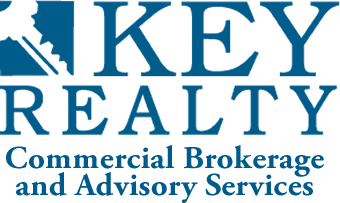Are Commercial Property Sales Climbing Despite Tariffs? (South Shore, MA)
Inquiring whether commercial property sales are rising in South Shore, Massachusetts—even as tariffs swirl—is a smart question. The interplay between rising materials costs and local market fundamentals makes this topic more relevant than ever. Let’s unpack the key dynamics at work and what they mean for buyers, investors, and developers across our region.
Tariff Turmoil and Construction Costs
Tariffs—especially on steel, aluminum, and other imported materials—are undeniably squeezing construction budgets. Reports note a steep fifty percent tariff hike on steel and aluminum imports, further inflating costs in an industry already battling post-pandemic price surges and labor constraints. Even more moderate tariff pressures still introduce uncertainty in procurement, scheduling, and budgeting.
Regional Ripple Effects
Here in Massachusetts, businesses are bracing under the weight of increased operating costs. Owners of stores and manufacturers alike have reported profit-pinching tariff hikes ranging from five percent to thirty percent. Meanwhile, commercial projects such as schools could see cost bumps of around three percent, transferring financial strain onto districts or contractors unless buffers are built into budgets.
But Tariffs May Not Sink Sales
On the flipside, some areas remain resilient. Local markets like Hingham and other South Shore suburbs continue to attract activity thanks to strong fundamentals—proximity to Boston, high quality of life, and enduring demand for commercial space. This suggests overall sales may hold steady even if developers face tighter margins.
Supply-Side Challenges and Developer Calculations
For developers, rising material and labor costs trigger a hard reassessment. Some locals—like developers in Gateway Cities—face tight profit margins that could jeopardize small projects entirely if costs escalate too sharply. Others are adapting by sourcing domestically or adjusting schedules and designs to manage uncertainties.
South Shore Market Resilience
On the South Shore—where commercial listings in towns like Braintree, East Bridgewater, and beyond remain active—there’s evidence of ongoing demand. Whether it’s for retail, office, or mixed-use spaces, the pipeline is still moving, even if new development plans must account for tariff-driven cost volatility.
Key Realty’s Role in Navigating the Complexity
This is where Key Realty proves invaluable. By closely tracking cost pressures, new listings, and shifting demand patterns across the South Shore, our team helps clients evaluate whether it’s a good time to buy, sell, or hold. We can assist in scenario-based analyses that factor in tariff-driven cost assumptions—so you’re making decisions based on the clearest picture possible.
Strategies That Matter
Key Realty guides clients toward properties with structural advantages: strong location fundamentals, potential for adaptive reuse, or existing improvements that mitigate material exposure. We also collaborate with trusted local contractors who are adept at managing sourcing flexibly—helping control cost swings and preserve project viability.
So, are commercial property sales climbing on the South Shore despite tariffs? Yes—in many ways, the market continues to move, buoyed by robust demand and strategic adaptation. But success hinges on insight, preparedness, and local know-how. At Key Realty, we don’t just observe the market—we help you navigate it. With tailored data, scenario planning, and trusted local partnerships, we ensure your decisions stay ahead of the curve—even when tariffs aren’t.
If you have questions regarding any of our properties – or would like to purchase, sell or lease property – please contact us and let us know your needs. We look forward to hearing from you!
| Phone: | (617) 472-7200 |
| Address: | 16 Granite Street |
| Quincy, MA 02169 | |
| E-mail: | [email protected] |

